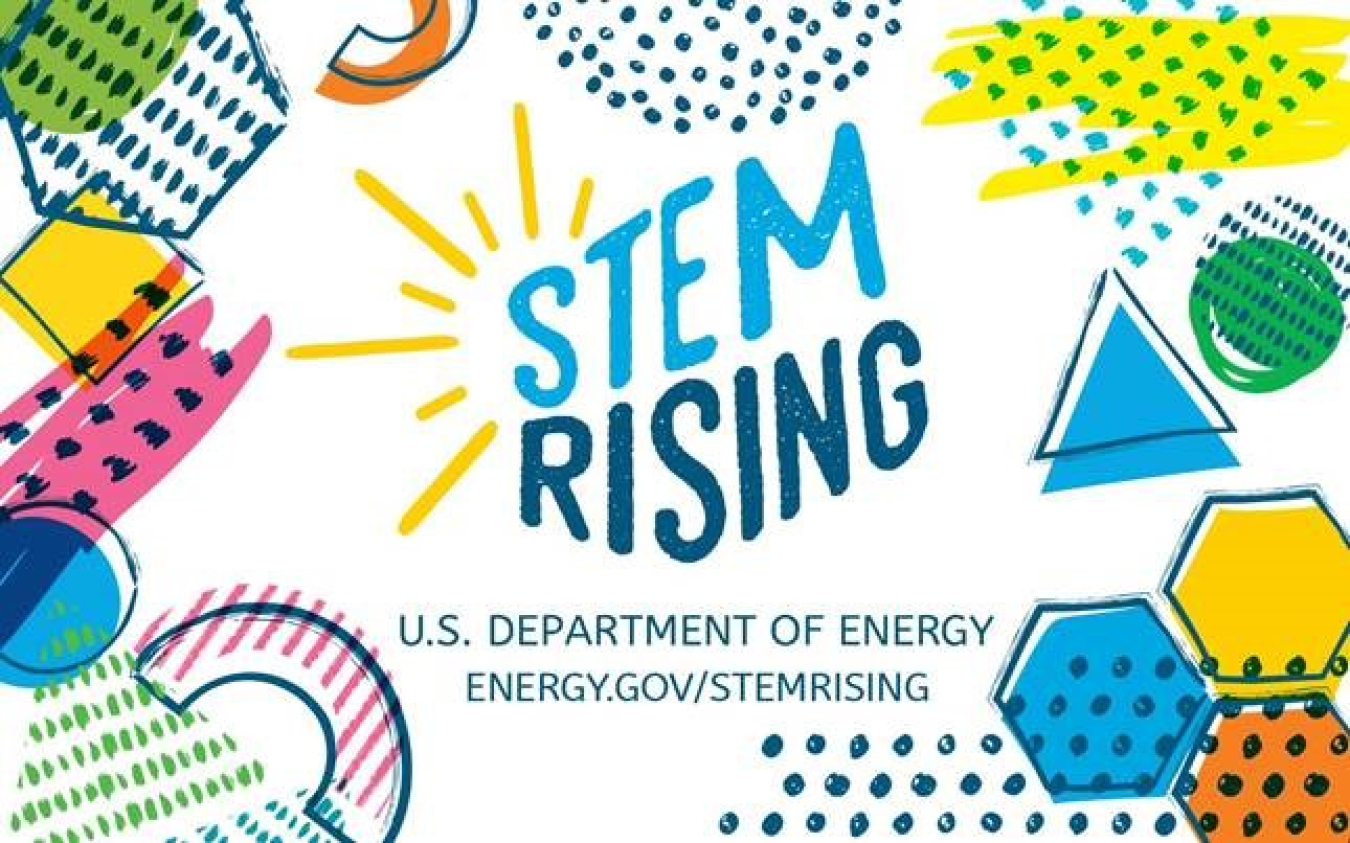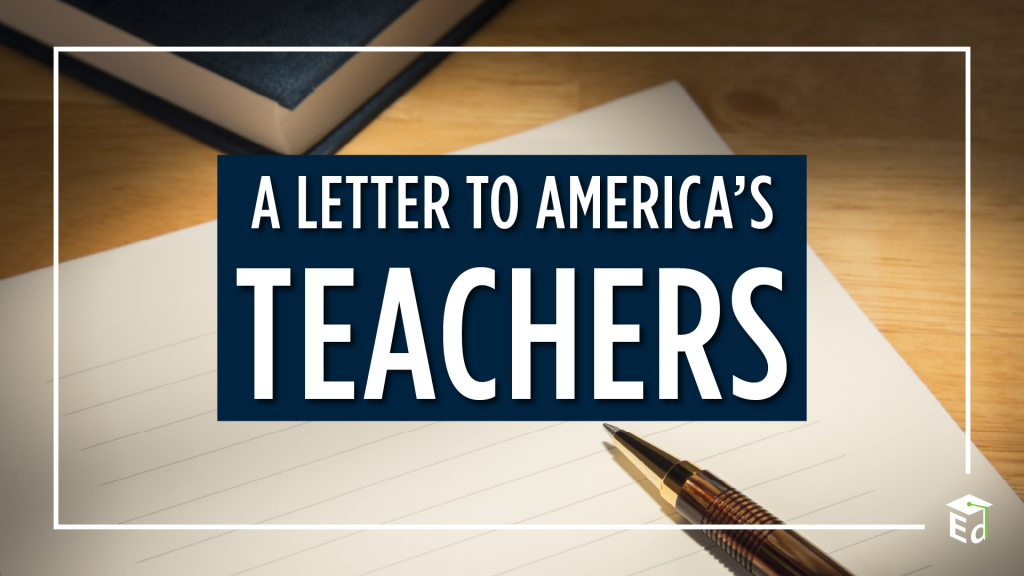This was crossposted from the U.S. Department of Energy blog.
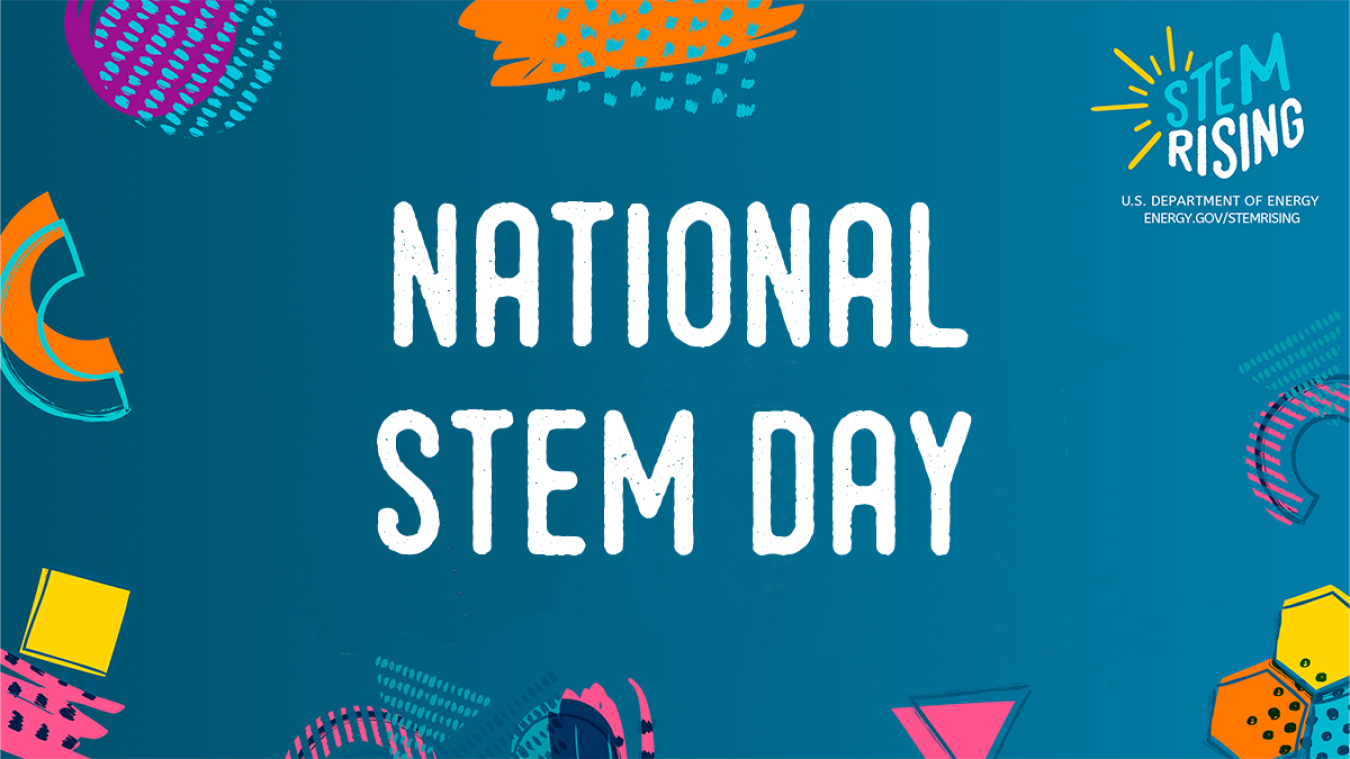
You hopefully have some of our STEM programs on your radar, like our Solar Decathlon, National Science Bowl®, and Science Undergraduate Laboratory Internships and Community College Internships. But, did you know there’s hundreds more programs out of our national laboratories and program offices? November 8 is National STEM Day, and we’re celebrating by taking a look at some of these amazing STEM programs we offer through DOE and the Labs.
1) A Fellowship on Breakthrough Clean Energy Solutions

The Energy Earthshots Initiative, launched at the U.S. Department of Energy this year, is aimed at accelerating breakthroughs of clean energy solutions within the decade. The first Earthshot announced is the Hydrogen Shot, an all-out effort to reduce the cost of clean hydrogen by 80% to $1 per 1 kilogram in 1 decade – and to train the diverse workforce needed to make this a reality. Enter the Hydrogen Shot Fellowship, an opening for 1-2 current Bachelors’, Masters’, and Doctoral students to come work with us on clean hydrogen production and infrastructure research. Applications are accepted on a rolling basis.
Geared towards: current Bachelors’, Masters’, and Doctoral students
2) A Way to Dive Into Algae Education
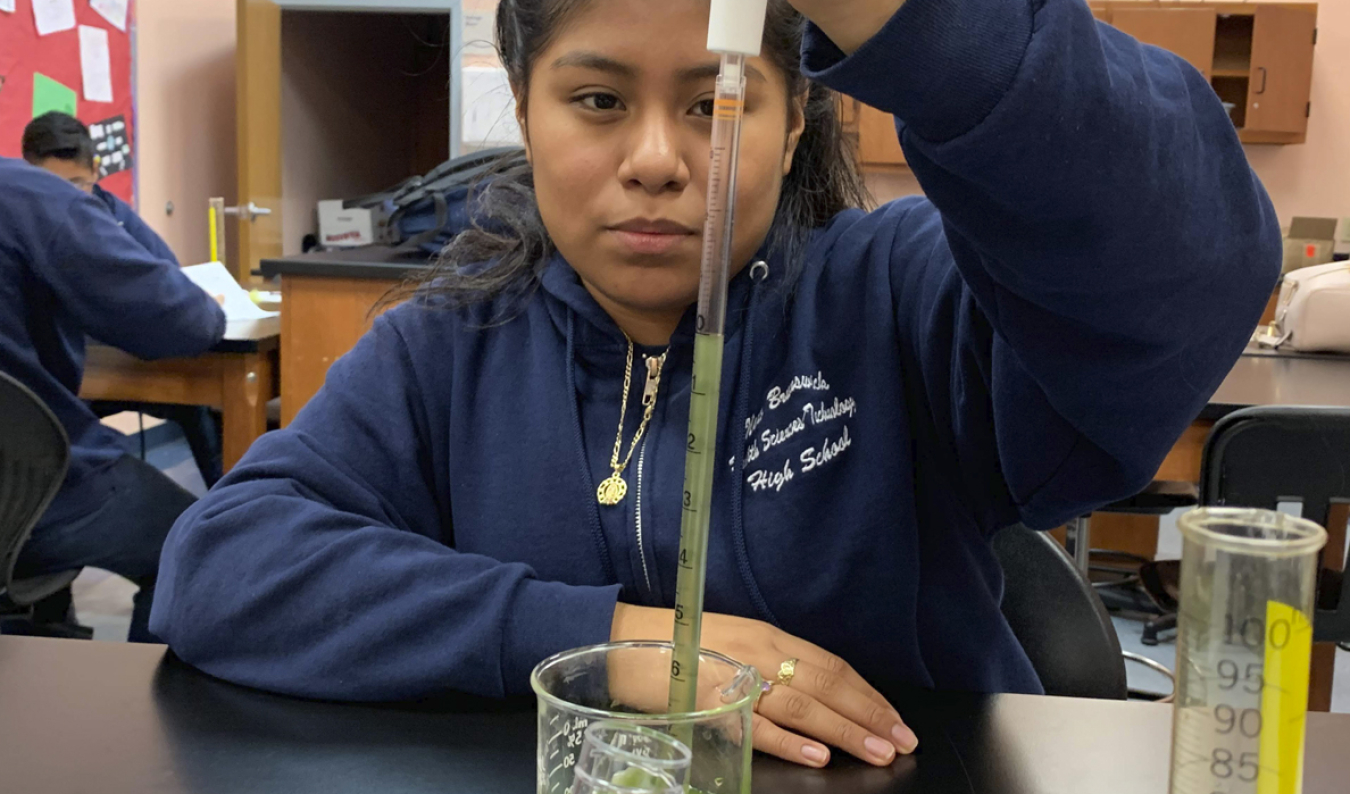
When you think of surfboards, biofuels, or flip flops, does algae ever come to mind? Did you know that DOE has free resources to expand your knowledge about algae beyond the sea, to discover how algae is used in sustainable everyday products (like the examples above!). The Algae Technology Educational Consortium (ATEC) is a collaboration between the U.S. Department of Energy’s Bioenergy Technologies Office and the Algae Foundation that shares education and learning opportunities for students and professionals, including the Algae Academy for grades K-12, a Massive Open Online Course (MOOC) program for professionals, biotechnology curriculums, and more.
Geared towards: K-12, professionals, and teachers
3) A Program to Expand Gender Diversity in Science Careers
A widely-popular program for high school students in the Chicagoland area is the Science Careers in Search of Women at Argonne. The annual program brings inspiration, knowledge, and tips for exploring STEM careers directly to high school students with the aim of advocating for greater gender diversity in the STEM workforce. At the annual event, Argonne National Laboratory’s female scientists and engineers mentor students on their career goals, provide networking opportunities, and share Argonne’s work to advance science, including global challenges such as combating the climate crisis.
Geared towards: High School students identifying as female
4) A Program to Jump-Start Your Inspiration to See Yourself in Nuclear
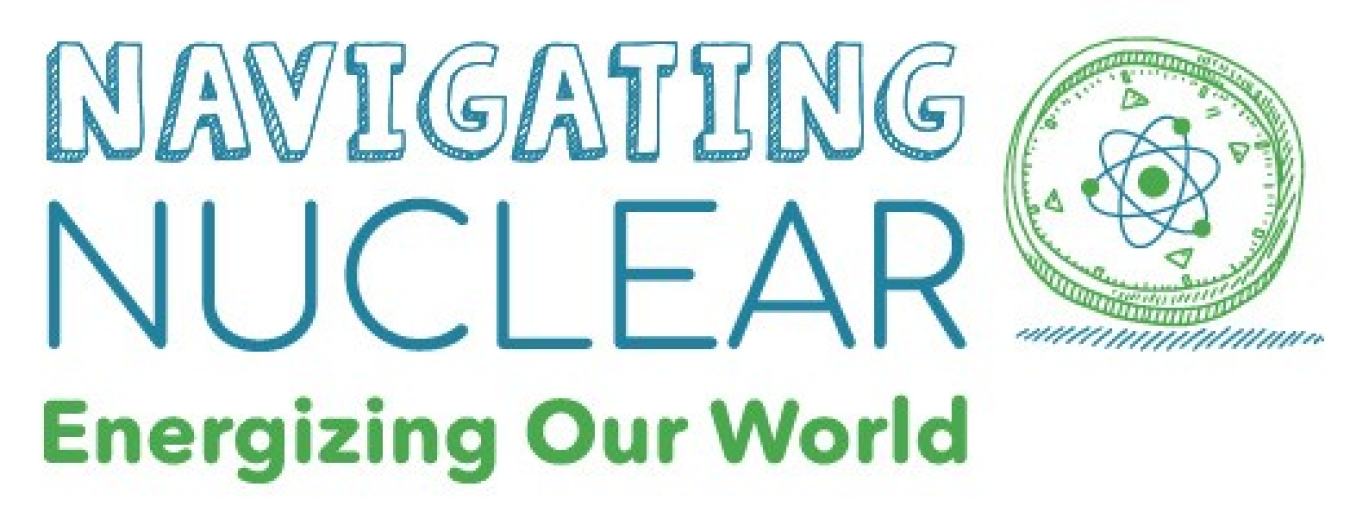
DOE’s Office of Nuclear Energy partners with the American Nuclear Society and Discovery Education to provide the highest standard in nuclear science education with Navigating Nuclear: Energizing Our World™. This dynamic, standards-aligned program invites students to explore the many applications of nuclear science and its impact on energy, healthcare, food, and the environment through an interactive suite of free resources. Explore STEM project starters, digital lesson plans, and exciting Virtual Field Trips where you can learn about different careers in nuclear science.
Geared towards: K-12 students and teachers
5) A Workforce & K-12 Education Program That’ll Blow You Away
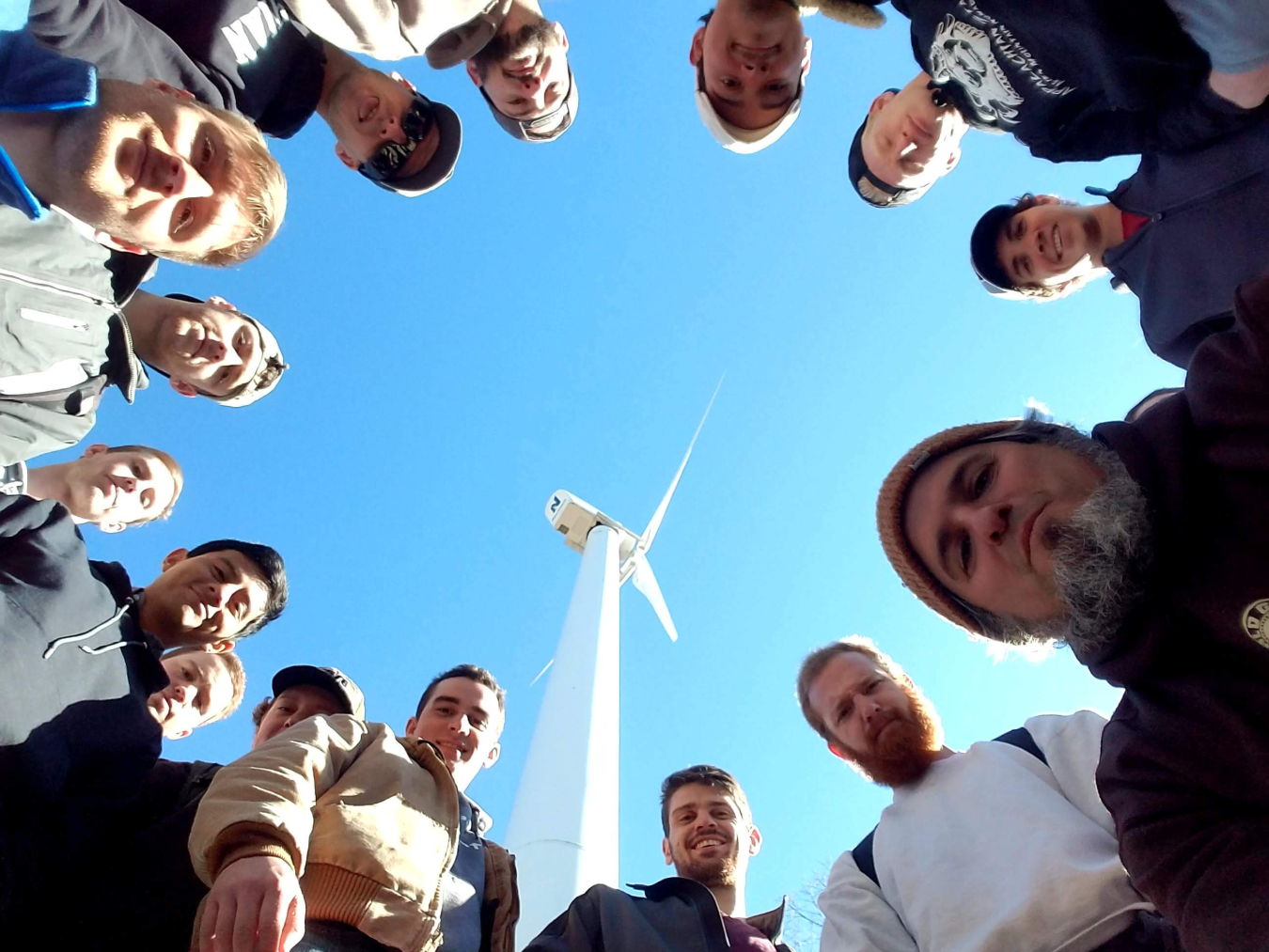
Talk about winds of change! The Wind for Schools program is spurring student interest in wind energy and helping train the workforce of tomorrow. The program provides K–12 and college students hands-on education and experience through the installation and operation of a wind turbine at primary schools. With more than 145 systems installed at host schools across 12 states, Wind for Schools has already introduced thousands of students to wind energy concepts.
Geared towards: current undergraduate students for Wind Application Centers; K–12 schools to host affiliate projects
6) A Summer Internship to Tackle the Climate Crisis
Want to tackle climate change? The Mickey Leland Energy Fellowship (MLEF) Program is currently accepting applications for their Summer 2022 program. This research program is under the Office of Fossil Energy and Carbon Management (FECM) and catered to undergraduate and graduate students in STEM majors seeking to gain experience in energy research. Participants will complete a cutting-edge research project at one of DOE’s national laboratories or at DOE headquarters under the mentorship of our scientists and engineers. Participants will also receive a stipend, travel and housing assistance. And the best part is that you will contribute to the FECM mission of minimizing the environmental impacts of fossil fuels while working towards net-zero emissions! Application deadline is January 10, 2022.
Geared towards: Undergraduate and graduate STEM students
7) A YouTube Collection You’ll Want to Browse for Days!
Frostbite Theater is a collection of science-themed videos from DOE Jefferson Lab’s Science Education group. Geared primarily towards middle school students, each Frostbite Theater video takes a quick, focused look at one topic. Whether it’s learning how to draw an atom or doing a virtual experiment with electromagnets, Frostbite Theater has you covered.
Geared towards: Middle School students
8) A Way to Spend a Day as a River
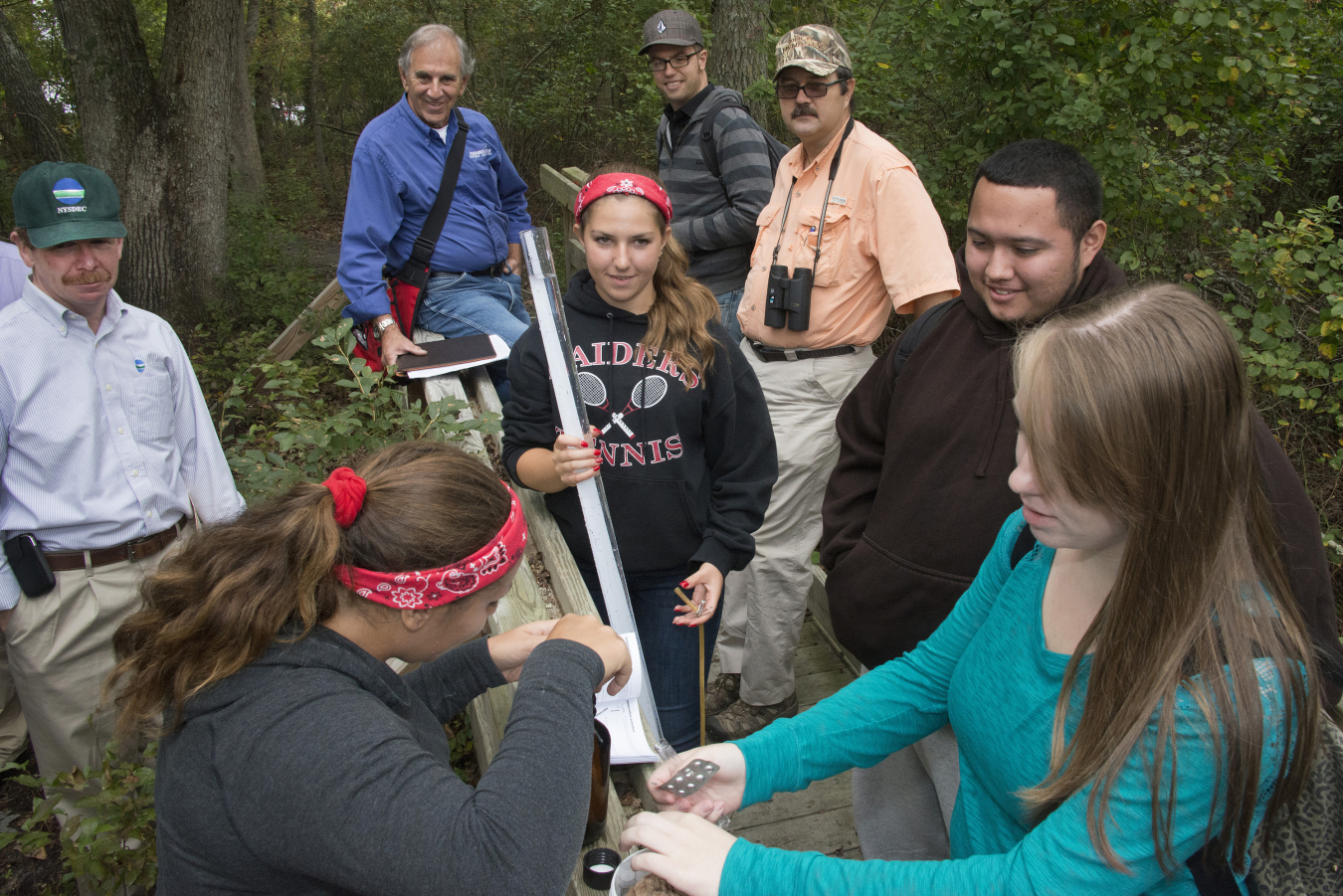
Have you ever wondered what happens in the day of a life of a river? A collaboration between Brookhaven National Laboratory, the New York Department of Environmental Conservation, and the Central Pine Barrens Joint Planning and Policy Commission, explores this very question through their “A Day in the Life of a River” program.
Each year, over 1,500 students and teachers, representing dozens of schools, take a day to go into the field to collect biodiversity and water chemistry data from several Long Island rivers and estuaries. Students and teachers explore careers in environmental science gathering data and samples side-by-side with the many local, state, and federal agency scientists that volunteer their time. Students and teachers learn proper data collection techniques and how to use scientific equipment in the field. The students, teachers, and community stakeholders experience what place-based environmental stewardship is all about.
Geared towards: Elementary, Middle School, and High School students and teachers, Community stakeholders and users of the resources
And wait, there’s so many more! Visit STEM Rising, our one-stop-shop for STEM activities at the Department of Energy, to browse through our activities by audience (K-12, college & continued learning, teachers, and workforce). Don’t miss any of the action by signing up for our monthly STEM Rising newsletter.
